The best time to eat breakfast, lunch and dinner according to the experts - here's how the timing of your family meals can boost your health
The time you choose to tuck in can make a huge difference when it comes to losing weight - so we asked the experts for the best time to eat breakfast, lunch and dinner.

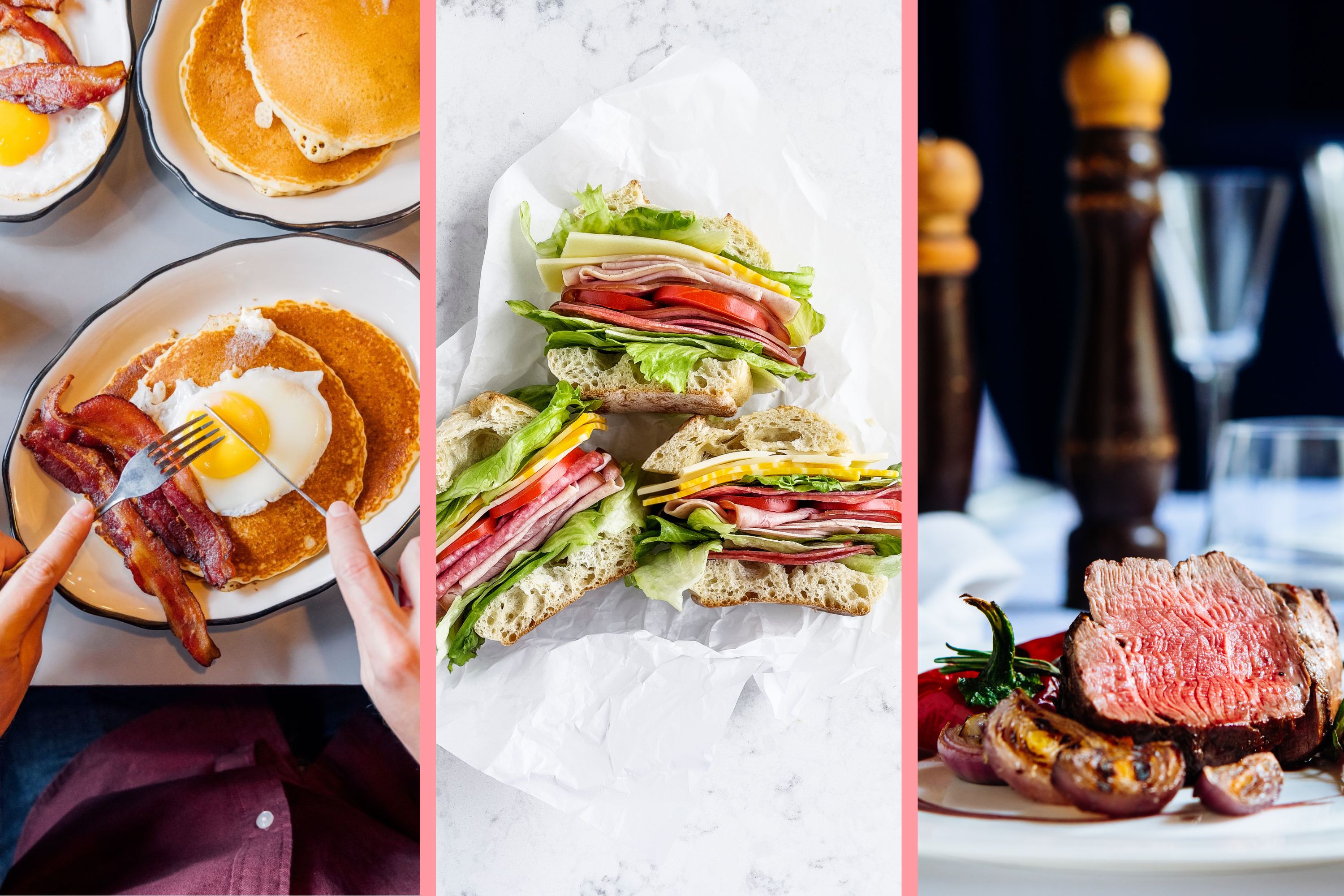
Parenting advice, hot topics, best buys and family finance tips delivered straight to your inbox.
You are now subscribed
Your newsletter sign-up was successful
Nutrition advice tends to focus on what to eat to maintain a balanced diet and improve health, but many [may] forget to consider the best time to eat breakfast, lunch, and dinner.
We know that fuelling the family is no easy task, and trying to convince the kids to go for a healthy cereal instead of something less nutritious is not for the faint-hearted, we get it. Modelling how to listen to your body, honour your hunger cues, and fill up on foods that will give energy throughout the day - and then the right kind of foods that will help them sleep at night - is a full-time job in itself. It takes a lot of consideration and planning, and that's before you think about how you're going to get everyone around the table at the same time. In the morning you've got the school run to contend with, and if your kids are off to after-school clubs then that can dictate when you're having dinner too.
But timing is, as they say, everything, and taking into consideration when your family sits down to eat their meals can have wider implications for their health. We get that busy family life means you might not always have total control over this, but if you've been wondering when the best time to eat breakfast, lunch, and dinner is, we've spoken to the experts to find out how you can boost your wellbeing by changing your meal times.
The best time to eat breakfast, lunch and dinner
The University of Murcia in Spain has the answer. Their research found that the best time to have breakfast is just after 7am (7.11am exactly, in fact). It’s also better to eat lunch sooner rather than later with a window of 12.30pm and 1pm, but 12.38pm precisely is the optimal time for lunch. When it comes to dinner, the later you eat the worse it can be for your weight loss goals. Aim for between 6pm and 6:30pm - or 6:14pm if you want to hit the exact best time to eat dinner, according to the study.
The researchers found that skipping breakfast is causally linked to obesity, as is a late lunch (which also had a harmful effect on gut microbiota diversity and composition). Meanwhile, a late dinner was shown to decrease glucose tolerance, which can lead to an increased risk of developing diabetes.
However, if you’re a night owl and don’t fancy getting up to make a healthy breakfast, just aim to eat within one hour of waking, food scientist Dr Claire Shortt told GoodtoKnow, rather than skipping breakfast altogether. “This keeps our hunger hormones in check and keeps us fuller and satisfied for longer,” she says.
The time you choose to eat is “all about balance”, Dr Shortt adds. “For the remaining meals of the day, it makes sense to spread out your food intake to maintain energy. Our bodies respond well to routine, so sticking to a 1pm lunchtime and 6pm dinnertime, if life allows, is ideal. Delaying meals too late in the afternoon and evening may result in overeating or making poor food choices.”
Parenting advice, hot topics, best buys and family finance tips delivered straight to your inbox.
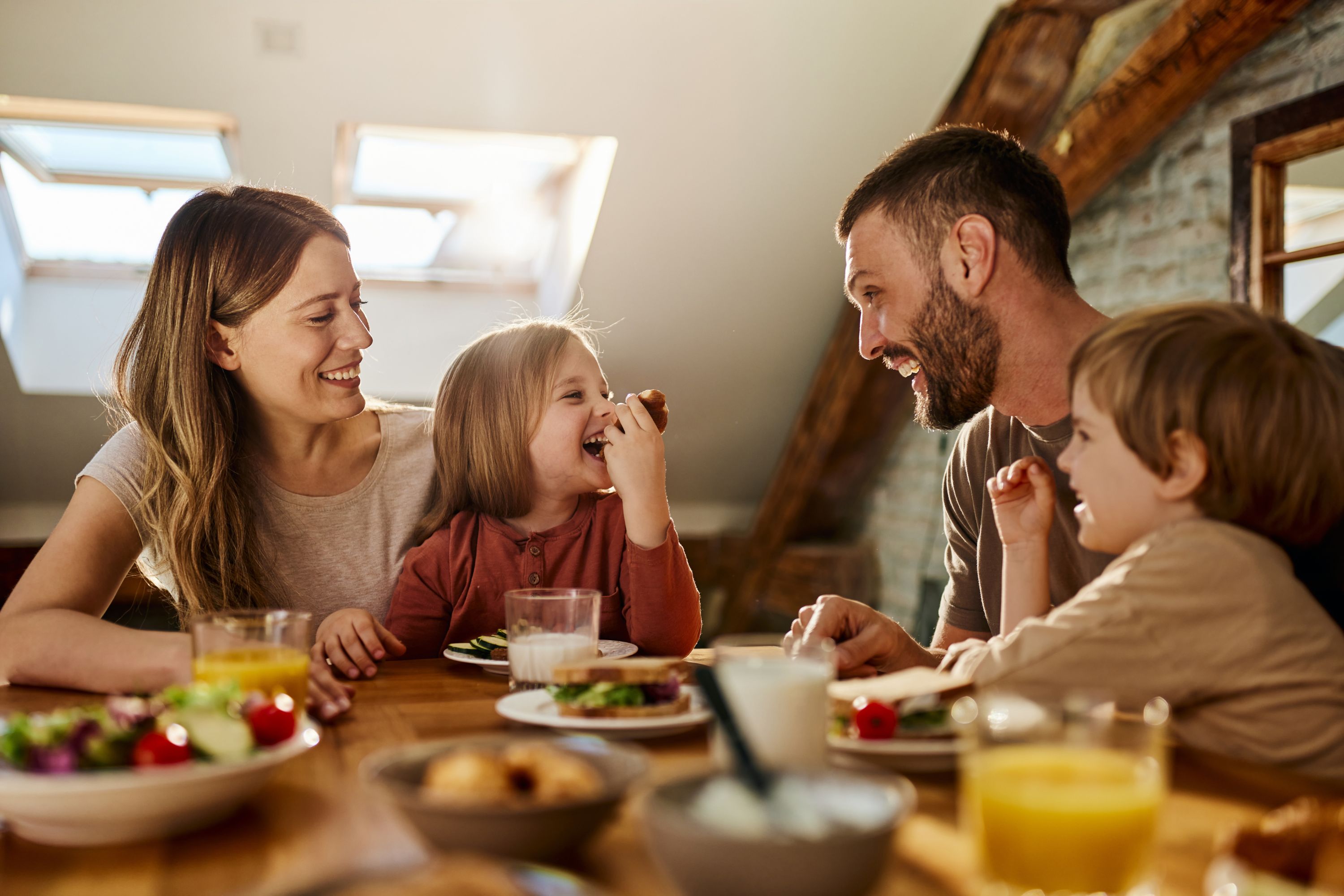
Personal trainer and nutrition advisor Maddy Biddulph adds: “Eating late or too close to bedtime isn’t a good idea, because it confuses the circadian rhythm - the body’s internal clock - which would have already ‘shut down’ your digestive system for the night. This means that if you start eating late when your body thinks you should be asleep, it can lead to digestive problems and a restless night.”
So, try to make sure you're sending your kids off to school having eaten breakfast - or, failing that, something they can eat on their way there - and try to get them round the table for dinner well before bedtime.
When is the best time for snacking?
The University of Murcia research found that the best times for snacking are 11.01am, 3.14pm and 9:31pm. This is when your willpower is most likely to fail you, but Dr Shortt, lead scientist at Food Marble, says you should consider having a snack anytime you go for more than four hours in between meals, or after intense exercise.
And your snack choice is also important, as not all snacks are created equal. “Choose ones that are full of fibre, coupled with a high protein ingredient as this will keep you feeling satisfied for longer,” Dr Shortt told GoodtoKnow. “It’s always important to practise mindful eating, even when snacking: be present and aware. Plan healthy snacks and what you will eat for each meal in advance to help you make better food choices - and stick to them.”
A post shared by GoodtoKnow (@goodtoknow)
A photo posted by on
But while a high-protein diet has its benefits - it reduces appetite and can avoid you craving those late night snacks - it’s important to avoid eating too much in one sitting. Dr Shortt says: “Avoid eating too much protein in one meal - especially with little or no fibre. There’s always a limit to how much our body will absorb, so anything over is made available to our gut microbes. They have a preference for high-fibre foods and when none are available they start to break down undigested protein instead. This process can be detrimental to gut health.”
Check out this collection of Joe Wicks recipes for healthy and balanced meal options that will satisfy the whole family.
Is skipping meals bad?
Yes, skipping meals is bad for you, says Dr Shortt. “Whatever you do, don’t skip meals! Skipping breakfast tends to be associated with various markers of poor health like weight gain and impaired glucose metabolism,” she says. This can put you at greater risk of developing diabetes and cardiovascular disease.
“Often, people find eating breakfast reduces impulsive snacking and sets the stage for good nutrition for the day. In particular, eating a well-balanced breakfast with a good source of protein, such as Greek yoghurt, with some high-fibre foods like berries, can set up your metabolism for the day.”
And you shouldn't skip lunch and dinner either. A study by Osaka University in 2021 found that people who skipped lunch or dinner were more likely to be overweight, while both men and women who skipped their final meal of the day were more likely to sleep for fewer hours at night, leading to feelings of being tired all the time.
Breakfast, lunch and dinner ideas
Breakfast
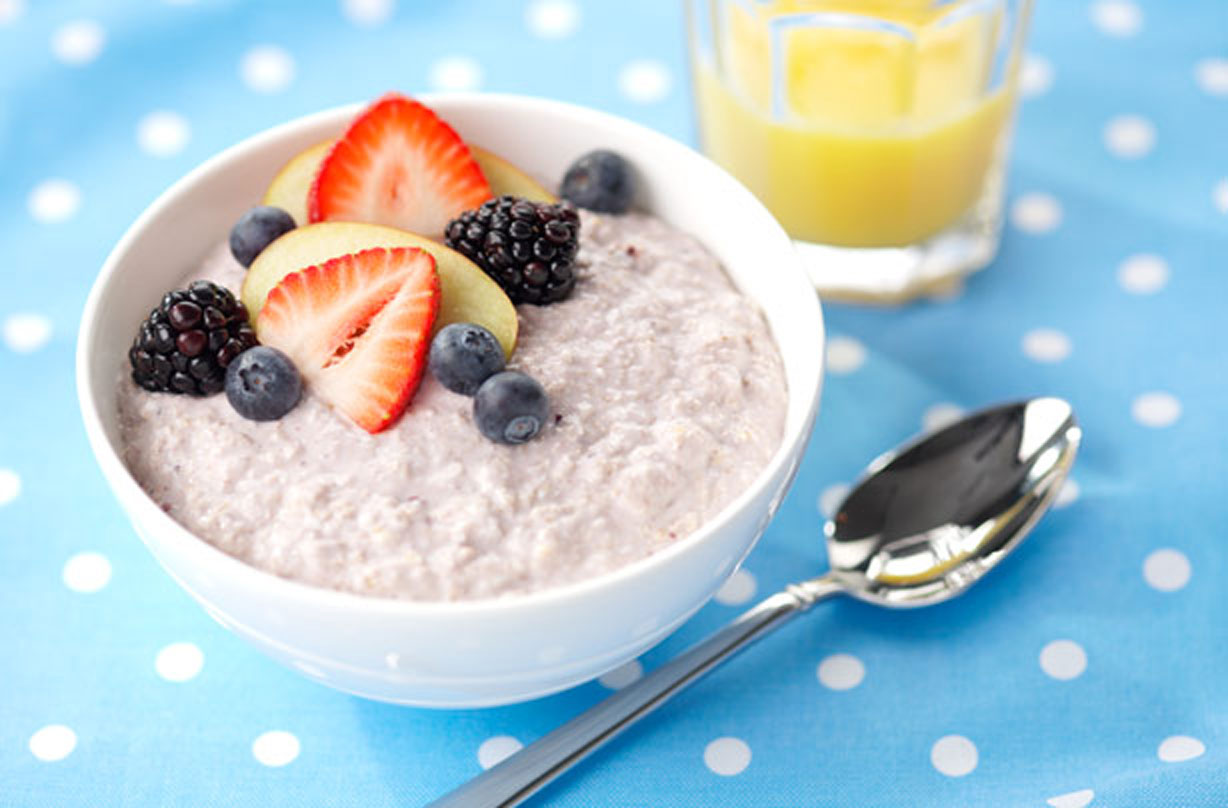
If you've got the school run to contend with five days a week, then we get it if making a healthy breakfast doesn't always make it onto your list of priorities. But making sure you eat enough to boost your energy through the day is important - especially if you're a parent with kids to look after. Banana and oats are both foods that will keep you going all day, or you could try prepping breakfast the night before - try these banana, chocolate and quinoa overnight oats or this overnight oats with chocolate and peanut butter recipe.
Lunch
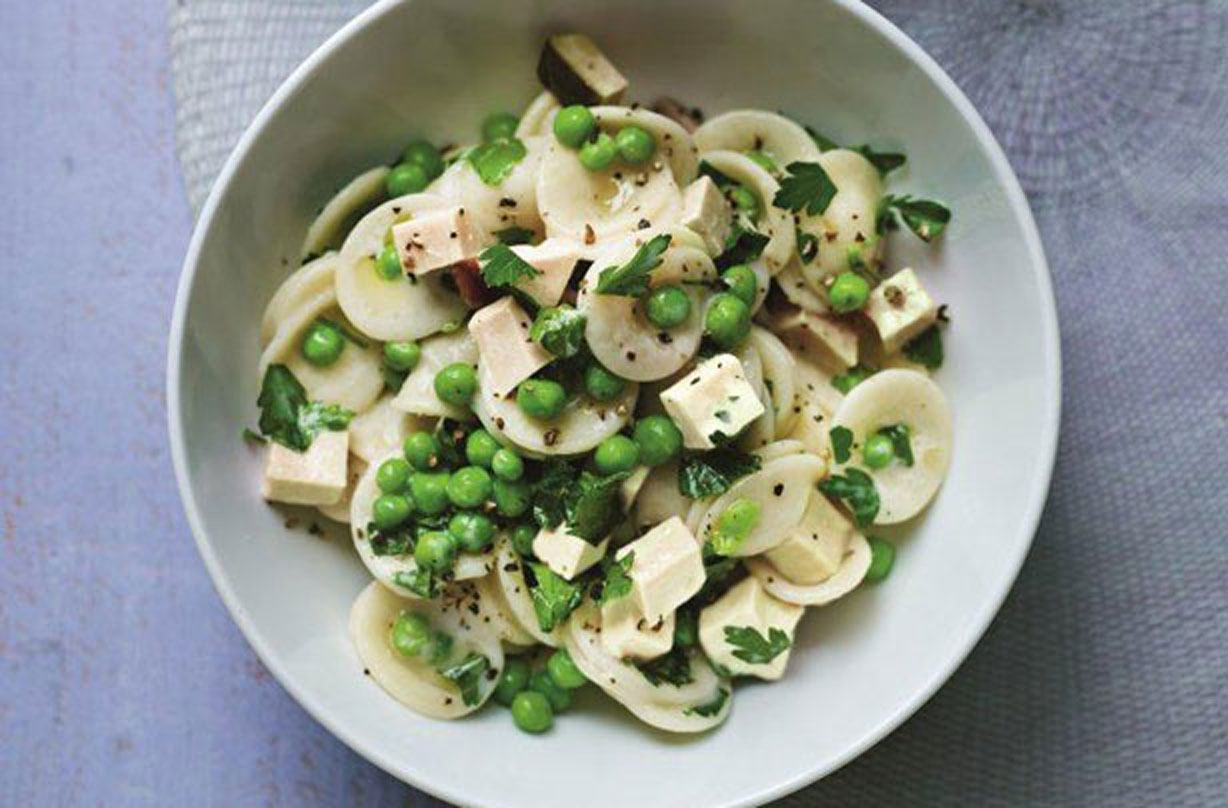
You'll need a boost halfway through the day and it's important to give your body the nutrients and protein it needs. For this, opt for complex carbohydrates instead of refined ones (white pasta, rice and bread). This will help you to stay fuller for longer and you won't experience an energy crash a couple of hours after lunch. Try some of these low-calorie lunch ideas for inspiration.
Dinner
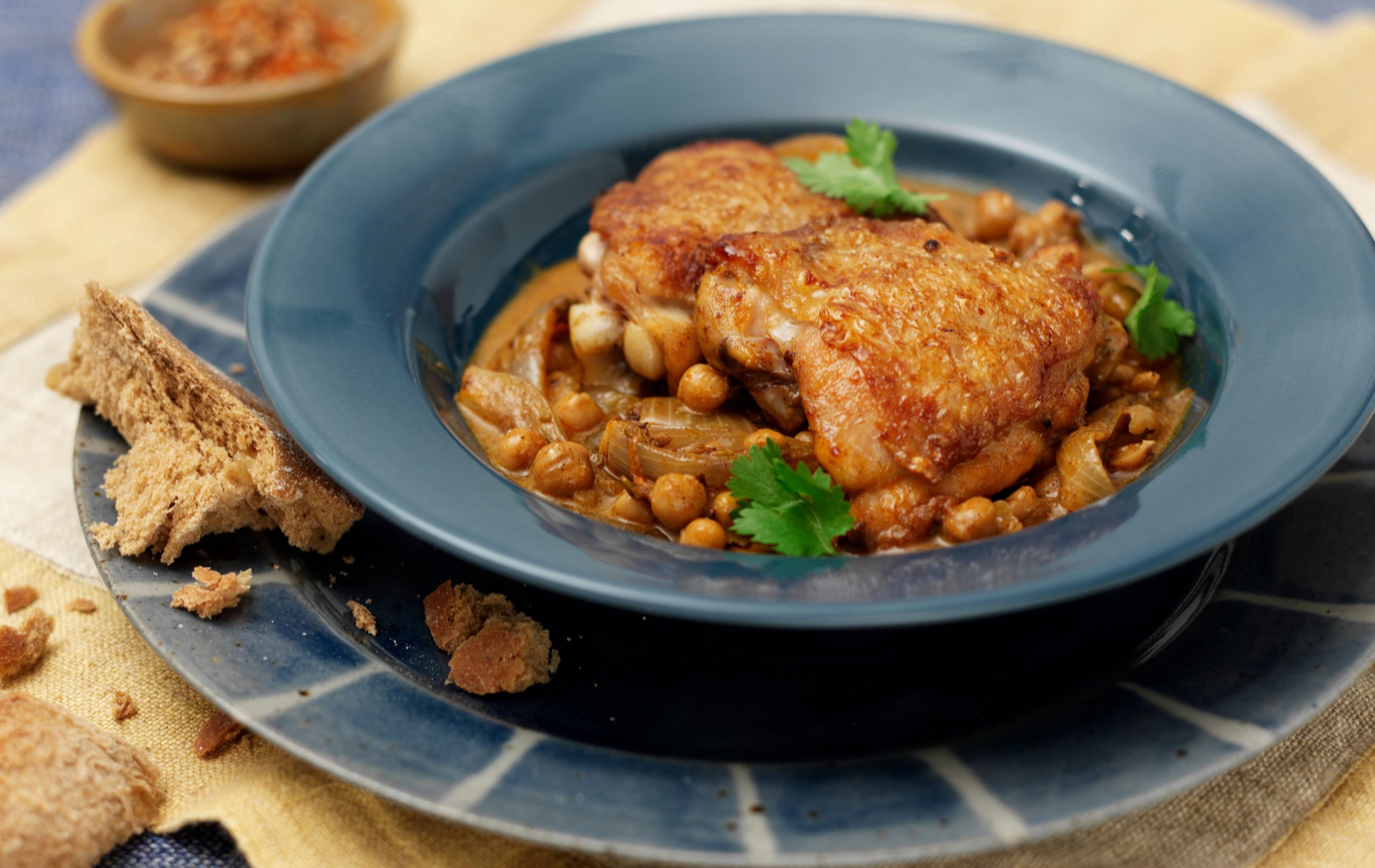
You don't want to feel too full before bed, so it's best to base your dinner around protein and vegetables, rather than going for a carb-heavy pasta dish. For more inspiration, take a look at some of these healthy low-calorie dinner recipes.
If you want to know more about the healthiest food choices for your family, we've rounded up the best and worst chocolate bars for your diet, and explained how to have a healthy takeaway. We've also taken a look at the healthiest crips and the healthiest biscuits too.

Ellie is GoodtoKnow’s Family News Editor and covers all the latest trends in the parenting world - from relationship advice and baby names to wellbeing and self-care ideas for busy mums. Ellie is also an NCTJ-qualified journalist and has a distinction in MA Magazine Journalism from Nottingham Trent University and a first-class degree in Journalism from Cardiff University. Previously, Ellie has worked with BBC Good Food, The Big Issue, and the Nottingham Post, as well as freelancing as an arts and entertainment writer alongside her studies. When she’s not got her nose in a book, you’ll probably find Ellie jogging around her local park, indulging in an insta-worthy restaurant, or watching Netflix’s newest true crime documentary.